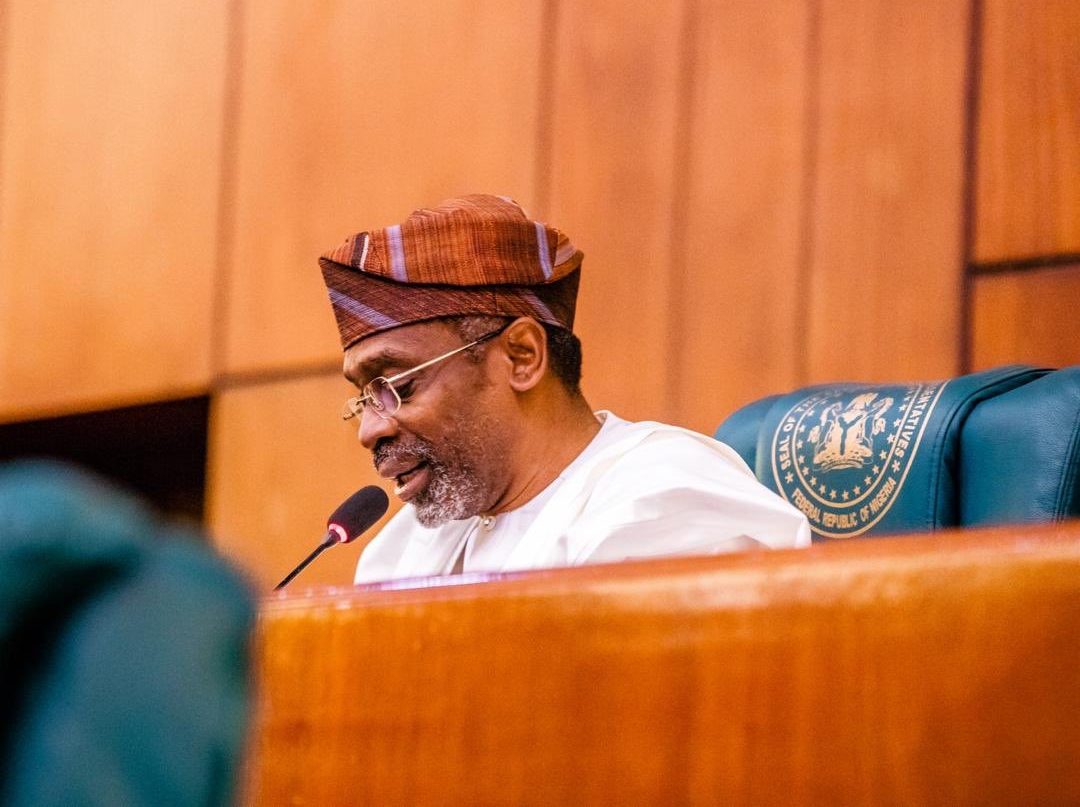UPDATED:Reps Bow To Pressure, To Subject Infectious Diseases Bill To Public Hearing
House of Representatives says it will subject the Control of Infectious Diseases Bill, 2020 being debated on the floor to a public hearing.
The Speaker, Mr Femi Gbajabiamila, who seemed to have bowed to public pressure, announced this during Plenary in Abuja on Tuesday.
This follows a public outcry over the document being considered by the lawmakers
The bill was speedily suspended after first and second reading last Tuesday.

Since then the House leadership has denied that they got $10m to pass the bill.
Mr Femi Gbajabiamila disagreed with those who condemned the timing of the bill, insisting that it was appropriate to enact such a bill at this time.
He said the Control of Infectious Diseases Bill was conceived in the best interests of the Nigerian people and no one else.
The Speaker said the allegation that the Bill is a sinister attempt to turn Nigerians into guinea pigs for medical research while taking away their fundamental human rights was far from the truth.
Gbajabiamila said since the introduction of the Bill a week ago, there has been a barrage of criticisms against it, with allegations of sinister motives.
However, the Speaker said, as representatives of the Nigerian people, members of the House would never contemplate doing anything that would jeopardize the wellbeing of the citizens.
He said,”Suffice it to say that none of these allegations are true. Unfortunately, we now live in a time when conspiracy theories have gained such currency that genuine endeavours in the public interest can quickly become mischaracterised and misconstrued to raise the spectre of sinister intent and ominous possibility.
“I disagree wholeheartedly with the suggestion that this is not the ideal time to seek reforms of the infectious diseases and public health emergency framework in the country. The weaknesses of the present system have already manifested in the inability of the government to hold to proper account those whose refusal to adhere with Nigeria Centre for Disease Control (NCDC) guidelines led to the further spread of the coronavirus in Nigeria. We have had people break out from isolation centres, and others, who fully aware of their status chose to travel across state lines on public transport,’’ said Gbajabiamila.
He said as the number of those currently infected by the coronavirus continues to rise alongside the number of those who have died, there is no timeline for when the disease will pass, “and nobody can predict when the next public health crisis will occur, just as nobody predicted the present predicament.”
“It bears restating that we do not have in our country, a healthcare system or for that matter, a national economy that is sufficiently robust to withstand the dire consequences of a sustained infectious disease pandemic. We cannot tie our own hands in the fight against this disease.”
“Whether we choose to accept it or not, the world we live in has changed irretrievably. There is no ‘normal’ to return to as this present crisis has laid bare the fundamental weaknesses in our systems of law and policy and left our nation at risk of devastating outcomes on all sides.
“Our current task is first to survive and then to set about building a new world. Inevitably, this demands that we should be willing to consider new ideas, explore novel possibilities, rejecting those ancient shibboleths we have long adhered to without benefit.”
The Speaker added that citizens may sometimes disagree with the how and the why of policy proposals, but that the parliament of the people is not an echo chamber.
“It is a marketplace of ideas where only those proposals that gain currency with the majority should carry the day. However, our disagreements must be grounded in a shared recognition that our present travails demand urgent interventions. And we must not allow ourselves to become victims of the cynical assumption that every policy proposal or response is a result of personal inducement or a grand conspiracy to bring harm to the people on whose behalf we hold political office.”
Thus, he said: “The Control of Infectious Diseases Bill will be put forward to a public hearing where stakeholder contributions will be sought to make improvements to the Bill before it is reviewed and debated by the Committee of the whole.
“It is from the accumulation of these myriad views, suggestions and good faith critiques from within and outside the House that we will arrive at final legislation that meets the present and future needs of our country, and which we all can support in good conscience,” he said.
The Speaker added that the social distancing guidelines that the House and the whole country operate for the time being would not allow for a usual format of public hearing, but that “If a socially distant public hearing becomes workable, we will certainly explore that option.
“Nonetheless, the House will provide alternative platforms for all Nigerians who desire to send in written documents that articulate their concerns, make recommendations on amendments and perhaps present other formulations for a new framework for managing infectious diseases in Nigeria.
“All the contributions we receive will be considered and aggregated to improve the proposed legislation.”



839089 456648Spot up for this write-up, I seriously believe this web site needs a lot far more consideration. Ill apt to be once a lot more to learn additional, appreciate your that information. 139679
142125 101875Read More HERE. I bookmarked it. 800152